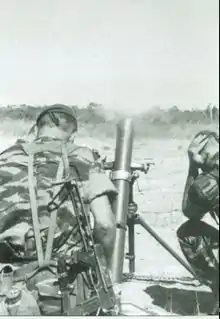MAT-49
The MAT-49 was a submachine gun which was developed by French arms factory Manufacture Nationale d'Armes de Tulle (MAT) for use by the French Army and was first produced in 1949.
| Pistolet-Mitrailleur de 9 mm modèle 1949 (MAT-49) | |
|---|---|
 MAT-49 on display. This weapon has the front grip lowered in firing position, but lacks a magazine. | |
| Type | Submachine gun |
| Place of origin | France |
| Service history | |
| In service | 1949–present |
| Used by | See Users |
| Wars | First Indochina War Suez Crisis 1958 Lebanon Crisis Algerian War Vietnam War Laotian Civil War Cambodian Civil War Portuguese Colonial War Rhodesian Bush War Western Sahara War Shaba II Chadian–Libyan conflict Lebanese Civil War Libyan Civil War[1] Syrian Civil War Northern Mali conflict[2] Central African Republic Civil War (2012–present)[3] |
| Production history | |
| Designer | Pierre Monteil |
| Designed | 1949 |
| Manufacturer | Manufacture Nationale d'Armes de Tulle Manufacture d'armes de Saint-Étienne |
| Produced | 1949–1979 |
| Variants | See Variants |
| Specifications | |
| Mass | 3.5 kg (7.7 lb) without magazine 4.2 kg (9.3 lb) with 32-round magazine |
| Length | 460 mm (18.1 inch) 720 mm (28.3 in) |
| Barrel length | 230 mm (9.1 in) |
| Cartridge | 9×19mm Parabellum 7.62×25mm Tokarev (VPA converted) |
| Caliber | 9 mm |
| Action | Blowback, open bolt |
| Rate of fire | 600 rounds per minute[4] |
| Feed system | 20 or 32 rounds 35 rounds (VPA converted) |
Development
In 1949, after evaluating several prototypes (including a collapsible design from Hotchkiss), the French MAT factory began production of the MAT-49 9 mm submachine gun. The MAT-49 used a machine stamping process which allowed the economical production of large numbers of submachine guns, then urgently required by the French Government for use by Army, French Foreign Legion as well as airborne and colonial forces to meet the need of a compact weapon.[5]
Production continued at Tulle until the mid-1960s, then switched to the Manufacture d'armes de Saint-Étienne plant (MAS), where the weapon was produced until 1979. In that same year, the French armed forces adopted the FAMAS 5.56 mm NATO assault rifle, and the MAT-49 was gradually phased out of service.
Usage
The MAT-49 saw widespread combat use during the First Indochina War and the Algerian War, as well as the 1956 Suez Crisis.[6][7] The weapon found considerable favor with airborne and mechanized troops, who prized it for its simplicity, ruggedness, firepower and compactness.[7]
After French forces left Indochina, the People's Army of Vietnam and Viet Minh converted many captured MAT-49s to the Soviet 7.62 mm Tokarev pistol cartridge, then available in large quantities from the Soviet Union and the People's Republic of China. These converted versions could be distinguished by a longer barrel and a higher rate of fire at 900 rpm.[8][9]
North Vietnam covertly provided MAT-49s to anti-French occupation groups during the Algerian War after the French left Indochina.[10]
Overview
The MAT-49 had a short, retractable wire stock, which when extended gave the weapon a length of 720 mm (28 in), and the magazine well and magazine could be folded forward parallel to the barrel for parachute jump or with a 45° angle hence allowing a safe carry until the magazine well is brought back to vertical position before opening fire. Barrel length is 230 mm (9.1 in), with the MAT-49/54 manufactured with extended barrels and non-retractable wooden stocks.[5] As issued, the MAT-49 fires a 9×19mm Parabellum cartridge, using a single-column 20-round magazine for desert use or 32-round similar to the Sten magazine.
The MAT-49 is blowback-operated and box magazine-fed, with a rate of fire of 600 rounds per minute on full auto. The MAT 49/54, a modified MAT-49s manufactured for police forces, had two triggers, allowing use of full-auto fire or single shots, but most were manufactured as full-auto only.[5] Minus magazine, the MAT-49 weighs about 3.5 kilograms (7.7 pounds), which renders it somewhat heavy for a submachine gun. The weapon incorporates a grip safety which is located on the backside of the pistol grip. The rear sights are flip-up and "L"-shaped, and marked for a range of 50 and 100 meters (55 and 109 yd). Production ceased after the introduction of the FAMAS assault rifle in 1979.
Variants
- MAS-48 - prototype variant.
- MAT-49 - main variant.
- MAT-49/54 - gendarme variant with extended barrel and fixed wooden stock with a sling bar.[5]
- MAT-49 silenced - variant fitted with a suppressor.[6]
- K-43 (or MAT-49 M) - variant modified by the Viet Minh, firing in 7.62×25mm Tokarev. It had a longer barrel and a higher rate of fire (900 rpm). Spare parts were still produced in the 1970s, the gun being used by the Viet Cong.[11]
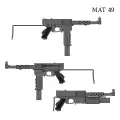 MAT-49: left and right views; view with stock retracted and magazine in safe position
MAT-49: left and right views; view with stock retracted and magazine in safe position Police MAT-49/54 model
Police MAT-49/54 model
Users
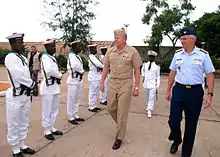
 Algeria[12]
Algeria[12]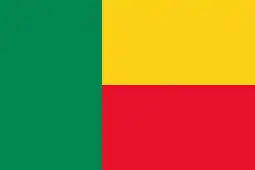 Benin[12]
Benin[12]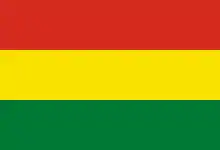 Bolivia[12]
Bolivia[12]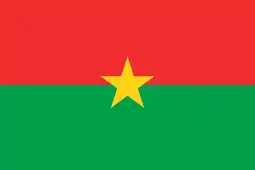 Burkina Faso[12]
Burkina Faso[12] Burundi[12]
Burundi[12]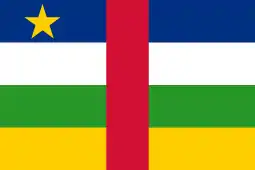 Central African Republic[12]
Central African Republic[12]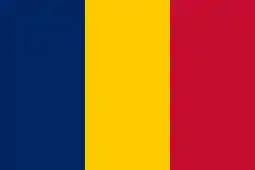 Chad[12]
Chad[12]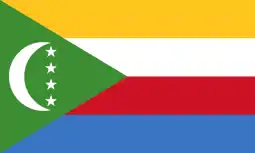 Comoros[12]
Comoros[12]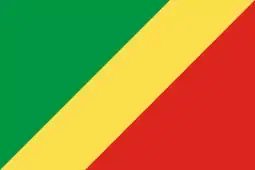 Republic of the Congo[12]
Republic of the Congo[12] Cote d'Ivoire[12] [13]
Cote d'Ivoire[12] [13]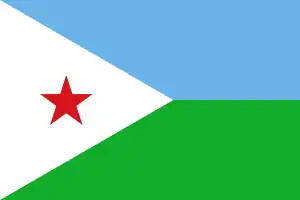 Djibouti[12]
Djibouti[12]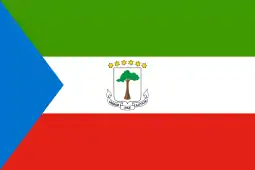 Equatorial Guinea[12]
Equatorial Guinea[12] France: Adopted by the French army in 1949.[4] Also used by the National Gendarmerie.[4]
France: Adopted by the French army in 1949.[4] Also used by the National Gendarmerie.[4]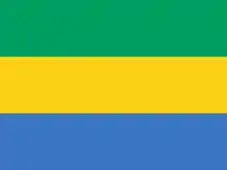 Gabon[12]
Gabon[12]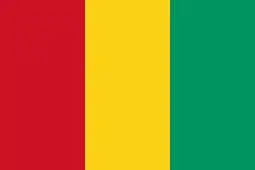 Guinea[12]
Guinea[12]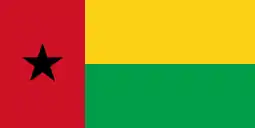 Guinea Bissau
Guinea Bissau.svg.png.webp) Kingdom of Laos: Received from French government during First Indochina War.[14]
Kingdom of Laos: Received from French government during First Indochina War.[14]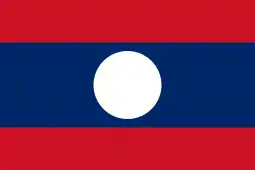 Laos[12]
Laos[12] Lebanon[12]
Lebanon[12]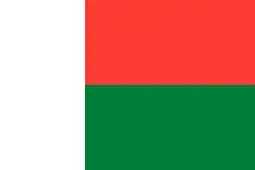 Madagascar[12]
Madagascar[12]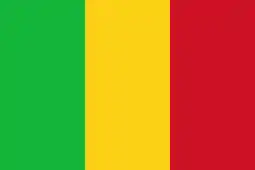 Mali[12] - Armed and Security Forces of Mali
Mali[12] - Armed and Security Forces of Mali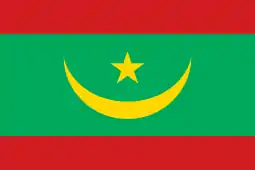 Mauritania[12]
Mauritania[12]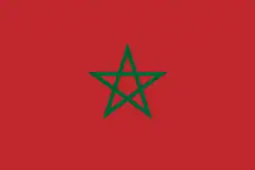 Morocco[12]
Morocco[12]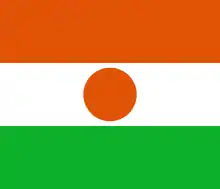 Niger[12]
Niger[12]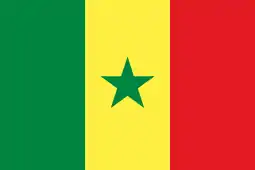 Senegal[12]
Senegal[12]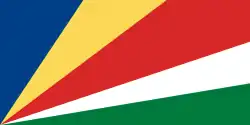 Seychelles[12]
Seychelles[12] Syria: used by police and special forces
Syria: used by police and special forces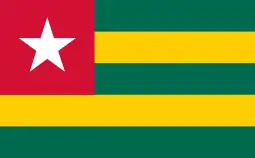 Togo[12]
Togo[12] Tunisia[12]
Tunisia[12]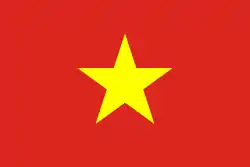 Vietnam: used 9mm and 7.62mm MAT-49s.[11]
Vietnam: used 9mm and 7.62mm MAT-49s.[11]
Non-state entities
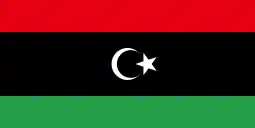 National Liberation Army (Libya)[15]
National Liberation Army (Libya)[15]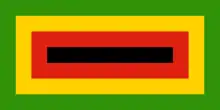 Zimbabwe African National Liberation Army[16]
Zimbabwe African National Liberation Army[16].svg.png.webp) Viet Minh,[17] known as Tuyn, from the name of the manufacturer (Tulle).[18]
Viet Minh,[17] known as Tuyn, from the name of the manufacturer (Tulle).[18]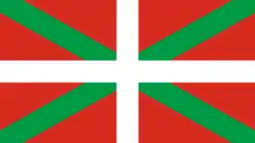 ETA: Produced unlicensed copies of existing weapons in an underground workshop at Mouguerre after it was raided by police.[19]
ETA: Produced unlicensed copies of existing weapons in an underground workshop at Mouguerre after it was raided by police.[19]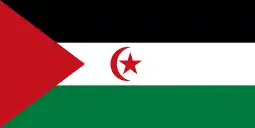 Sahrawi Arab Democratic Republic [20]
Sahrawi Arab Democratic Republic [20].svg.png.webp) FRELIMO[21]
FRELIMO[21]- Séléka[22]
See also
- Gevarm D4
- Hotchkiss Type Universal
- Sola submachine gun
- Vigneron submachine gun
- MAS-38 replaced in the 1950s by the MAT-49 submachine gun.
References
- Chivers, C. J. (April 20, 2011). "Inferior Arms Hobble Rebels in Libya War". The New York Times.
- Rebel Forces in Northern Mali: Documented weapons, ammunition and related materiel, April 2012-March 2013 (PDF) (Report). Conflict Armament Research and Small Arms Survey. April 2013.
- "Importante saisie d'armes en Centrafrique". RFI (in French). 16 March 2014.
- http://world.guns.ru/smg/fr/mat-49-e.html
- https://www.forgottenweapons.com/mat-49-54-police-submachine-gun/
- http://www.smallarmsreview.com/display.article.cfm?idarticles=2508
- Leulliette, Pierre, St. Michael and the dragon;: Memoirs of a paratrooper, New York:Houghton, Mifflin & Co. (1964), p. 29
- http://www.5rar.asn.au/weapons/mat49.htm
- http://www.virginia1774.org/DIA-ST-HB-07-03-74.pdf
- https://www.forgottenweapons.com/vietnamese-guns-for-algeria/
- Ezell, Edward Clinton (1988). Personal firepower. The Illustrated history of the Vietnam War 15. Bantam Books. pp. 18, 35, 42. OCLC 1036801376.
- Jones, Richard D. Jane's Infantry Weapons 2009/2010. Jane's Information Group; 35 edition (January 27, 2009). ISBN 978-0-7106-2869-5.
- de Tessières, Savannah (April 2012). Enquête nationale sur les armes légères et de petit calibre en Côte d'Ivoire: les défis du contrôle des armes et de la lutte contre la violence armée avant la crise post-électorale (PDF) (Report). Special Report No. 14 (in French). UNDP, Commission Nationale de Lutte contre la Prolifération et la Circulation Illicite des Armes Légères et de Petit Calibre and Small Arms Survey. p. 97.CS1 maint: ref=harv (link)
- Conboy, Kenneth (23 Nov 1989). The War in Laos 1960–75. Men-at-Arms 217. Osprey Publishing. p. 15. ISBN 9780850459388.
- Ackerman, Spencer (April 21, 2011). "Libya's Rebels Fight with Ancient, Useless Weapons". Wired.
- http://usacac.army.mil/cac2/cgsc/carl/download/csipubs/ArtOfWar_RhodesianAfricanRifles.pdf
- McNab, Chris (2002). 20th Century Military Uniforms (2nd ed.). Kent: Grange Books. p. 304. ISBN 1-84013-476-3.
- "Những vũ khí viện trợ đã ra trận cùng QĐVN trong trận Điện Biên Phủ". tintuc.vn. 11 November 2014.
- (in Spanish)Hallan en Francia un viejo arsenal de subfusiles de ETA de los años 70 elmundo.es
- Ignacio Fuente Cobo; Fernando M. Mariño Menéndez (2006). El conflicto del Sahara occidental (PDF) (in Spanish). Ministerio de Defensa de España & Universidad Carlos III de Madrid. p. 69. ISBN 84-9781-253-0. Fuente & Mariño.
- Abbott, Peter (2005). Modern African Wars (2): Angola and Mozambique 1961–1974. Oxford: Osprey Publishing. p. 14. ISBN 978-0-85045-843-5.
- Touchard, Laurent (17 December 2013). "Centrafrique : le Soudan a-t-il armé les ex-Séléka ?". Jeune Afrique (in French).
